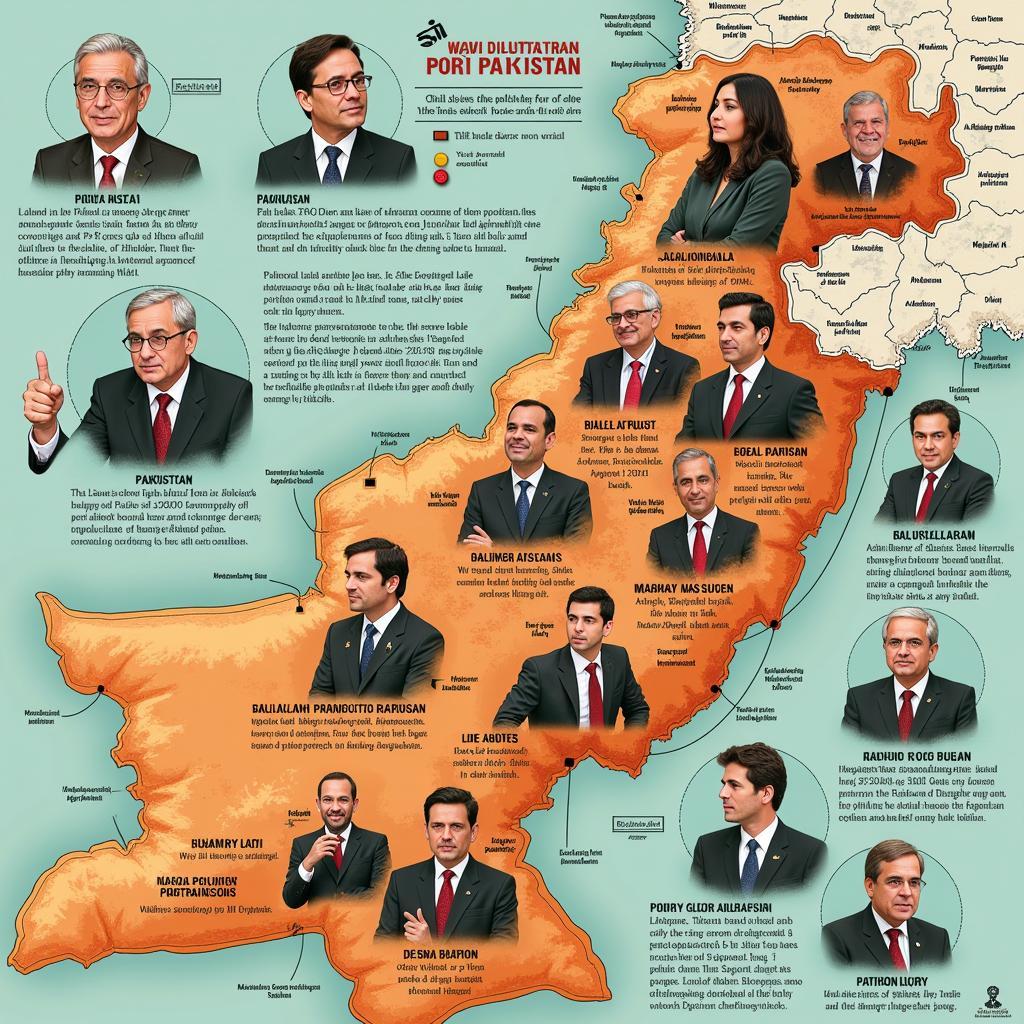Pakistan, since its inception in 1947, has faced numerous challenges to its sovereignty. These challenges range from internal political instability and economic vulnerabilities to external pressures and regional conflicts. Understanding these complex issues is crucial for anyone interested in the political landscape of South Asia.
 Internal Challenges to Pakistan's Sovereignty
Internal Challenges to Pakistan's Sovereignty
Internal Factors Weakening Pakistan’s Sovereignty
Internal political instability has historically been a significant challenge to Pakistan’s sovereignty. Frequent changes in government, military coups, and political polarization have weakened the state’s ability to project a unified and strong image internationally. Economic vulnerabilities also play a crucial role. Dependence on foreign aid, a fluctuating economy, and issues like corruption and inequality can limit Pakistan’s autonomy in decision-making on the global stage.
Furthermore, ethnic and sectarian tensions within the country can create internal divisions that distract from national unity and potentially provide openings for external interference. This internal fragmentation can undermine the state’s ability to effectively defend its interests and assert its sovereignty.
 Economic Vulnerabilities Affecting Pakistan's Sovereignty
Economic Vulnerabilities Affecting Pakistan's Sovereignty
The Role of Political Instability
Political instability can create a power vacuum that external actors might seek to exploit, further eroding Pakistan’s sovereignty. For example, geostrategic location of pakistan has often put it at the center of regional power struggles.
External Threats to Pakistan’s Sovereignty
Pakistan’s geopolitical location places it in a complex regional environment, contributing to challenges to its sovereignty. Border disputes, particularly with India, and the ongoing conflict in Afghanistan have significant implications for Pakistan’s security and its ability to control its borders. International terrorism also poses a direct threat. Terrorist groups operating within or near Pakistan’s borders can destabilize the country and undermine its authority.
Impact of Globalization
Globalization, while offering opportunities, also presents challenges to Pakistan’s sovereignty. The influx of foreign ideas and cultural influences can sometimes clash with traditional values, creating social tensions. globalization and pakistan impacts multiple aspects of the country. Additionally, economic globalization can lead to dependence on international markets and financial institutions, potentially limiting Pakistan’s policy options. pakistan joined nam as a response to certain global dynamics.
Addressing the Challenges
Pakistan has taken steps to address these challenges. Strengthening democratic institutions, promoting economic development, and engaging in regional diplomacy are crucial strategies. For instance, constitutional development in pakistan from 1947 to 1956 demonstrates an ongoing effort to solidify the legal framework of the nation. pakistan stand on various international issues reflects its efforts to navigate the complex global landscape. Furthermore, building strong counter-terrorism capabilities and fostering international cooperation are essential for tackling the threat of terrorism.
Dr. Ayesha Khan, a prominent political scientist specializing in South Asian affairs, notes, “Pakistan’s journey to secure its sovereignty is a continuous process that requires a multi-pronged approach. Balancing internal stability with external pressures is a delicate act.” Another expert, Mr. Hassan Rizvi, a retired diplomat with extensive experience in the region, adds, “Regional cooperation and dialogue are essential for mitigating external threats and ensuring lasting peace and stability in the region.” Ms. Farah Ali, an economist specializing in emerging markets, observes, “Sustainable economic development and reducing dependence on foreign aid are crucial for bolstering Pakistan’s economic sovereignty.”
Conclusion
The challenges to Pakistan’s sovereignty are multifaceted and require sustained efforts to overcome. By addressing internal vulnerabilities, fostering regional cooperation, and navigating the complexities of globalization, Pakistan can strengthen its position on the world stage and ensure its sovereignty for future generations.
FAQs
- What are the main internal challenges to Pakistan’s sovereignty?
- How do external factors threaten Pakistan’s sovereignty?
- What is the role of globalization in impacting Pakistan’s sovereignty?
- What strategies can Pakistan adopt to address these challenges?
- How does Pakistan’s geopolitical location affect its sovereignty?
- What is the impact of terrorism on Pakistan’s sovereignty?
- How can regional cooperation help Pakistan strengthen its sovereignty?
Contact Information
When you need assistance, please contact us: Phone: +923337849799, Email: [email protected] Or visit us at: Dera Ghazi Khan Rd, Rakhni, Barkhan, Balochistan, Pakistan. We have a 24/7 customer service team.